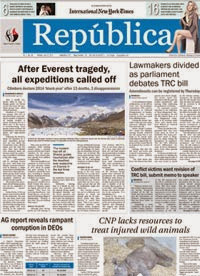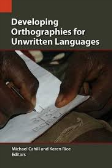MLE; Teaching in the tribal languages of Assam
National Geographic Reports on MLE in Assam National Geographic published last month a brief article on the multilingual educations program the NGO PAJHRA is doing among the tea planters in Assam. The article titled " A Talk over Tea: Preserving India's Indigenous Languages" states: " Although Adivasis account for about 20 percent of the population, most local schools do not teach in Adivasi...
.png)




